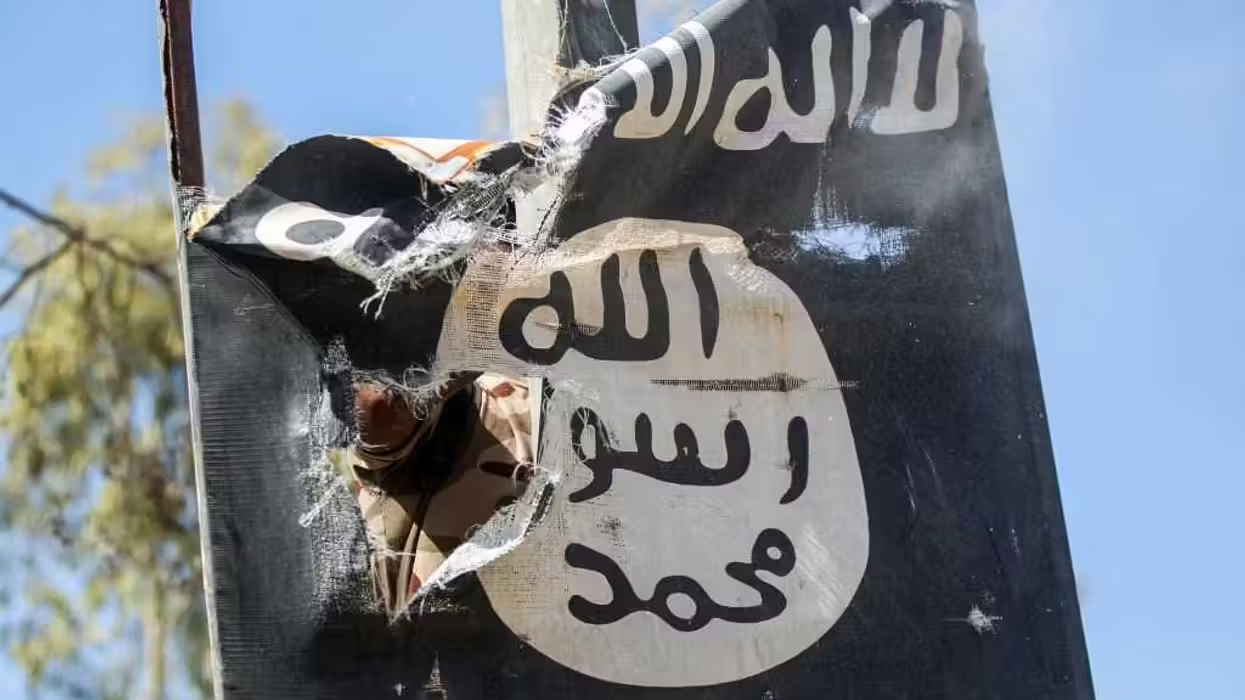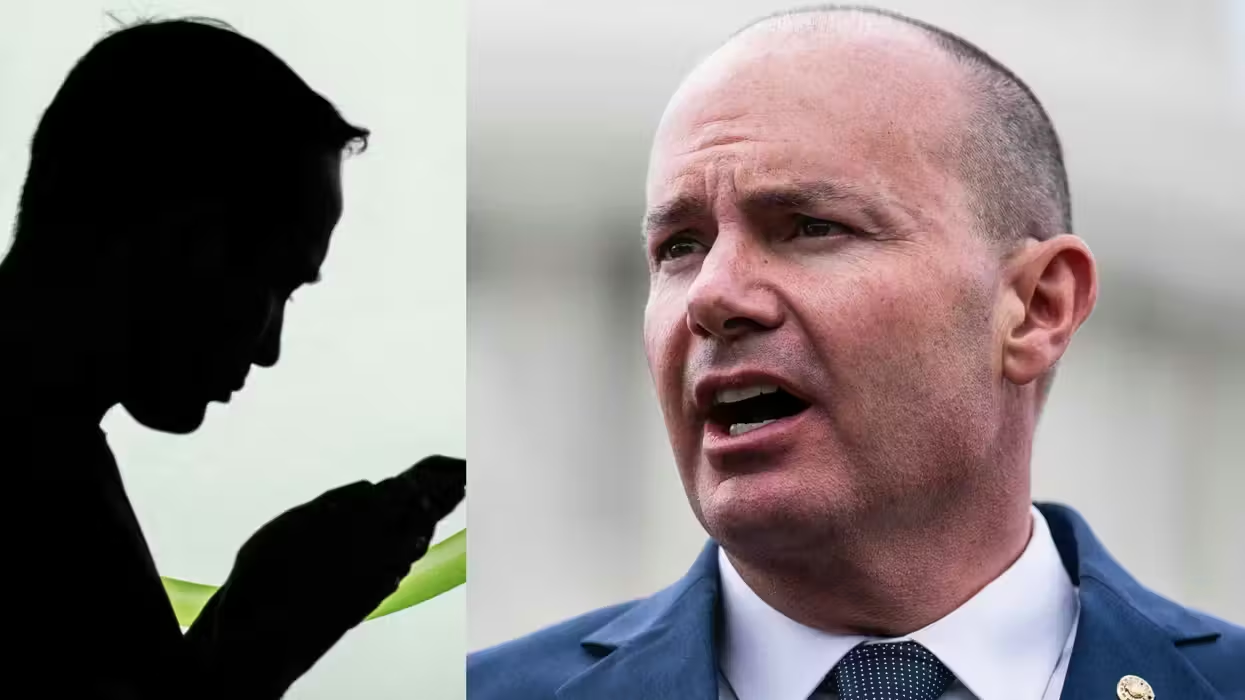© 2025 Blaze Media LLC. All rights reserved.
Are American Web-Hosting Companies Protecting the Most Active Al-Qaeda Websites? Read the Report
July 18, 2012
"another example of how terrorist groups have come to depend on American companies for their activities online."
It has long been known that some American-based website-hosting companies are providing the very forums on the Internet that could be bashing Western ideals and even spreading seeds of homegrown terrorism.
In fact, the Terrorism Research Initiative -- a group formed in 2007 by scholars and others to "contribute to the enhancement of human security" -- recently published an article in its journal Perspectives on Terrorism that finds extremists and terrorists "commonly use American platforms and domain names registered with American companies" as they seek "shelter under speech rights granted by the First Amendment."
Over the years, when it is revealed a certain domain-name registrar is hosting one of these sites, they are often promptly removed. Still, many continue to exist, and some speculate the U.S. government allows it for monitoring reasons.
The Middle Eastern Media Research Institute has recently called out more U.S.-based companies that are not only providing an avenue for some of extremist sites but also providing privacy protection services so registration information is not available on public databases.
If you were to create a new website, your domain name (essentially the name you see associated with a URL) would be registered in a database along with your IP address, which is the numeric name given to your computer or device, and other information associated with that address. There are measures you could take to comply with the registration protocol, but protect this information from being listed publicly. Many companies and other websites do this for privacy reasons.
The databases that maintains this information falls under the WHOIS (sounds like "who is") protocol, which is under the control the Internet Corporation for Assigned Names and Numbers (ICANN), a public-private partnership "created through a Memorandum of Understanding between the U.S. Department of Commerce and ICANN to transition management of the Domain Name System (DNS) from the U.S. government to the global community."
For example, the image below shows the information that would show up on the WHOIS database if you searched for Facebook.com.

MERMI pointed out that it was this information that eventually led to the closure of Anwar-Alawlaki.com when the radical Yemeni-American posted an article that praised Maj. Nidal Hasan for the shootings he conducted at Fort Hood in 2009. At the time MERMI was able to use information they found on the database about the private domain registration company -- DomainsByProxy.com -- with which al-Awlaki's site was registered. Although al-Awlaki's information was protected through the private registration, calling out DomainsByProxy.com resulted in the removal al-Awlaki's website within two hours of MERMI's initial report.

Now, MERMI in a more recent report, is listing other companies to show what it believes is "another example of how terrorist groups have come to depend on American companies for their activities online."
MERMI calls out Namecheap -- a company accredited by ICANN with a service called WhoisGuard to block domain registration information from showing up in database listings -- as hosting "the two most important Al-Qaeda-affiliated forums, Al-Shumoukh and Al-Fida'."

"This means that whoever created and registered the sites is paying WhoisGuard to conceal their identity," MERMI writes.
It names other companies based in the U.S. providing protective services to the online activities of radical Islamic groups as well: Network Solutions, Privacypost, Privacyprotect, Register.com, and PrivacyRegContact.
Still, there is a difference between inciting terrorism and religious freedom and freedom of speech. In January, the Baltimore Sun reported on efforts by authorities to distinguish between these as it tried to prevent "homegrown terrorists":
The U.S. government hasn't always been comfortable with such outreach, says Matthew Levitt, director of the Stein Program on Counterterrorism and Intelligence at the Washington Institute for Near East Policy."We're concerned about free-speech issues, we're concerned about getting involved in something that's being done in the name of religion, etc.," he said. "But there are ways to come at this that shouldn't make people feel uncomfortable."
He compares the current approach to public service campaigns against smoking.
"It's not illegal to smoke, the same way it's not illegal to say nasty things. But we do spend a lot of time and money and have a lot of policies in place to try and contest what is a dangerous habit — dangerous for yourself and for others. We could be doing the same with violent extremism."
This is also not the first time domain name registrars have been called out for hosting extremist websites either. In 2009, Todd Bensman, an investigative reporter in San Antonio, recalled in a PJ Media post how he called out a Dallas-based company for hosting terrorist websites in 2005. The domain registrar promptly shut down the sites after being alerted to this fact and, as Bensman pointed out, it could "[represent] a potential violation of a U.S. trade embargo against the designated state sponsor of terror." In 2008, a similar case was reported by the Washington Post of another Texas company "[renting] cyberspace to the group and had no clue about its Taliban connections." Here's more from that Post at the time:
Militants' use of U.S. Web hosts has sparked occasional spats between the United States and its allies, as well as endless debates over whether it is better to shut down the Web sites when they're discovered or to let them continue to operate. By allowing them to remain online, intelligence analysts can sometimes discover clues about the leadership and structure of terrorist groups, some analysts say.[...]
A senior Pakistani official said repeated requests to Washington to shut down controversial sites have gone unheeded -- and American authorities' seeming reluctance has become "an irritant." The official, who spoke on the condition of anonymity because he is not cleared to discuss the issue, said Pakistani intelligence experts are convinced that Washington prefers to keep the sites running for intelligence purposes.
Given MERMI's most recent report, it's clear there are still extremist websites being hosted by American companies.
Do you think the government should do something to actively shut down these sites or is the potential information that could be gleaned too valuable to encourage that effort? Or is it a freedom of speech issue?
Read more details in MERMI's full report here.
Want to leave a tip?
We answer to you. Help keep our content free of advertisers and big tech censorship by leaving a tip today.
Want to join the conversation?
Already a subscriber?
more stories
Sign up for the Blaze newsletter
By signing up, you agree to our Privacy Policy and Terms of Use, and agree to receive content that may sometimes include advertisements. You may opt out at any time.
Related Content
© 2025 Blaze Media LLC. All rights reserved.
Get the stories that matter most delivered directly to your inbox.
By signing up, you agree to our Privacy Policy and Terms of Use, and agree to receive content that may sometimes include advertisements. You may opt out at any time.






